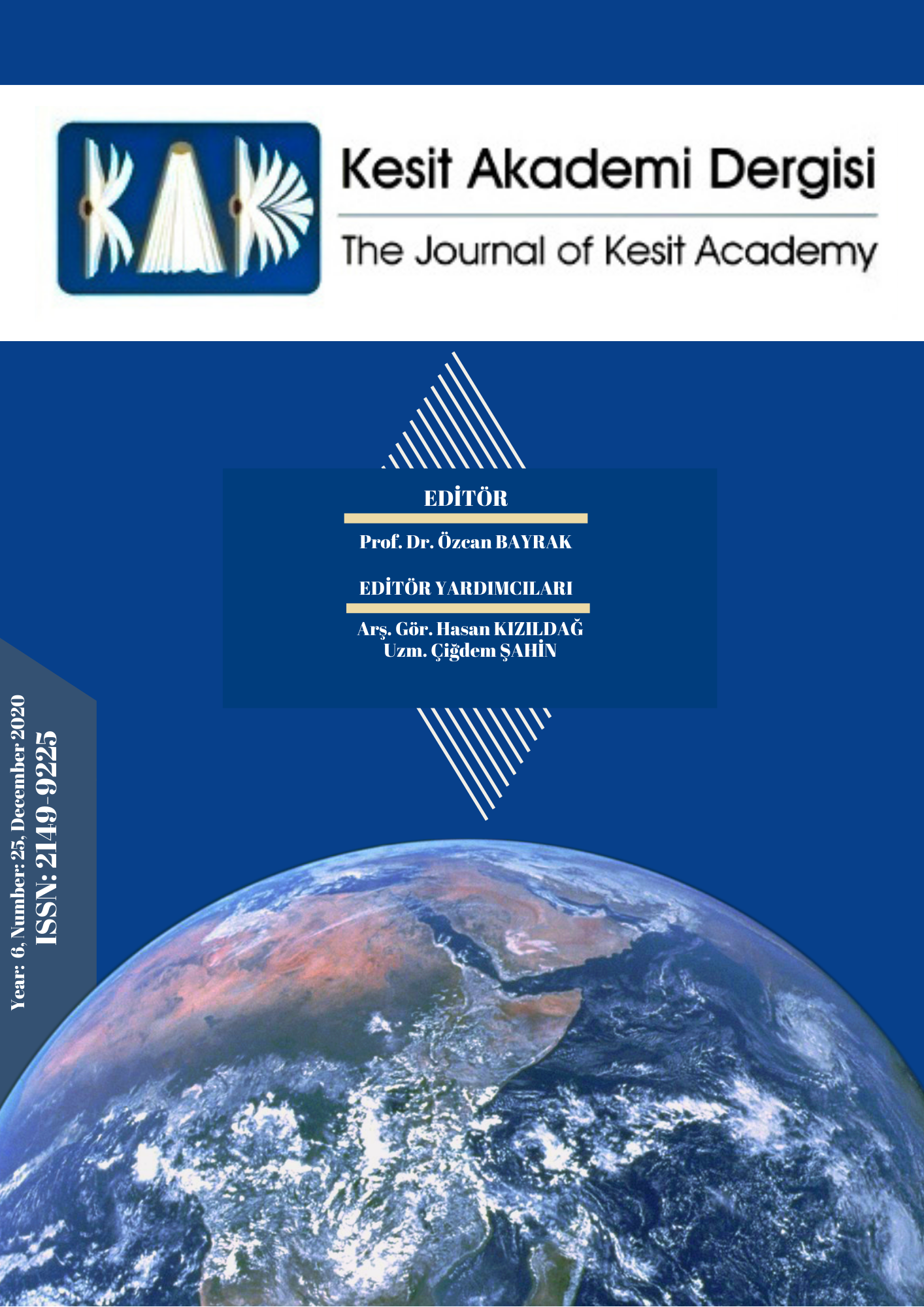Author :
Abstract
Ordu’nun Korgan ilçesine bağlı Sarıaliç Mahallesi, ataları Gürcistan’dan göç etmiş olan Türk vatandaşlarının yerleşim bölgesidir. Mahalle halkının tamamı Müslümandır. Bu araştırma geçiş dönemlerinden “evlilik” konusunu gün yüzüne çıkarmak amacıyla ele alınmıştır. Türk toplumunda geçmişten günümüze kadar aile hep önemlidir ve evlilik adeta bir kutsanma olayıdır. Evlenmek, üremek, çoğalmak, boya boy, soya soy katmak önemlidir. Bu durum Müslüman Gürcü toplumunda da bu şekilde süregelmiştir. Topluma ait olan âdet, inanış, uygulama ve ritüellerin çoğu geçiş dönemlerinde ortaya çıkmaktadır. Bu âdet ve uygulamalar özellikle de kutsal bir gözle bakılan evlilik müessesine geçişte karşımıza çıkar. Yeni kurulacak olan ailenin birliği, mutluluğu ve huzuru için toplumda her türlü gelenek, görenek, âdet ve inanma titizlikle yerine getirilir. Düğünlerde yapılan âdet ve uygulamaların temelinde din ile birlikte Gürcü toplumunun dünyayı algılama biçimi de yer almaktadır. Çalışmamız bu bağlamda kaynak kişiler ile görüşülerek ve yazılı kaynaklarla desteklenerek Sarıaliç Mahallesi’nde evlilik âdetlerini ortaya koymaktadır. Günümüzde bu mahalleye ait âdetlerin büyük bir bölümü uygulanmaya çalışılsa da eskiden uygulanan âdetlerin bir bölümü yok olmaya yüz tutmuştur. Çalışmamızı yaparken dikkat çeken diğer bir husus da yöredeki Gürcü gelenekleriyle ilgili bir çalışmanın daha önce yapılmamış olmasıdır. İslamiyet’in de etkisiyle, Sarıaliç Gürcülerindeki inanç ve ritüellerden İslamî bağlamda olanların Anadolu’nun diğer bölgeleriyle hemen hemen aynı olduğu görülmektedir.
Keywords
Abstract
Sarıaliç Street which is in Korgan district of Ordu is the residential area of Turkish citizens whose ancestors emigrated from Georgia. All of the people dwelling in that street are Muslim. This research is aimed to unearth the issue of “marriage” which is one of the transitional periods in human life. In Turkish society, from past to present, family has always been important and it is almost a sacred event. It is of crucial importance for them to get married, give birth, and continue their lineage for generations. This situation has been maintained in that way in Muslim Georgian society as well. Most of the customs, beliefs, applications and rituals which are associated with the society they are in, take place whilst the transitional periods in life. These customs and applications particularly come to light during wedding ceremonies which is regarded as a sacred event. For the unity, happiness and tranquility of the family to be established, all these customs and rituals are rigorously followed. The underlying reason for all the customs and applications of the wedding ceremonies is not only religious but it also reflects Georgian People's perception of life. In this context, this research is aimed to shed a light on the traditions of wedding ceremonies in Sarialic Street by dint of both interviewing the people residing there and making use of written sources. In spite of the fact that people try to adhere to the most of the traditions and rituals that are belong to Sarialic Street, it can be pointed out that some of these traditions and rituals are about to die out. Yet another point that attracted our attention while conducting this research is that there is no such an investigation done before related to the customs of Georgian people living in that region. It can be observed that, with the effect of Islamism as well, among the traditions and rituals held by the Georgians in Sarialic, the ones that are related with Islam religion do not differ much from those in the other parts of Anatolia.
Keywords
- 2 Ali Rıza ÜGEY 1950 Evli Emekli Okur Yazar Değil Korgan
- 2. Yazılı Kaynaklar Acar, M. (2011). Karabük Safranbolu Folkloru. Ankara: Anıt Matbaa. Aslantürk, Z. ve Amman, M. T. (2001). Sosyoloji. İstanbul: Çamlıca Yayınları. Ataman, S. Y. (1992). Eski Türk Düğünleri ve Evlenme Rit’leri. Ankara: Kültür Bakanlığı Yayınları, Türk Ta
- rih Kurumu Basımevi. Bilmen, Ö. N. (2007). Büyük İslâm İlmihâli. İstanbul: Ravza Yayınları. Bolgi, M. (2014). Korgan Tarihi Coğrafyasının Alt Yapısı. Samsun: Ceylan Ofset Yayıncılık. Erkal, M. E. (1999). Sosyoloji. İstanbul: Der Yayınları. Gıddens, A. (2000). Sosyoloji (Çev. C. Güzel). Ankara: Ayraç Yayınları. Kayabaşı, R. G. (2018). Bahşiş Yörüklerinde Evlilik ile İlgili Âdet ve İnanmalar. Folklor/Edebiyat, S. 24/94,
- 4 Ayşe TUTUCU 1966 Evli Ev Hanımı İlkokul Mezunu Korgan
- 5 Celâl TUTUCU 1948 Evli Emekli
- 67-93. Muhaxheri, N. M. (2016). Kosava Türklerinin Evliliğe Bağlı İnanış ve Uygulamalarında Eşiğin Yeri. Türki
- yat Mecmuası, S. 26/2, 287-292. Nirun, N. (1994). Sistematik Sosyoloji Yönünden Aile ve Kültür. Ankara: A.K.M. Ozankaya, Ö. (1999). Toplumbilim. İstanbul: Cem Yayınları. Örnek, S.V. (2014). Türk Halkbilimi. Ankara: Bilgesu Yayınları. Şişman, B. (2017). Türk Kültüründe Evlilik (Geleceğin Son Yüzyılı – Samsun Örneği. Ankara: Kurgan Edebiyat





